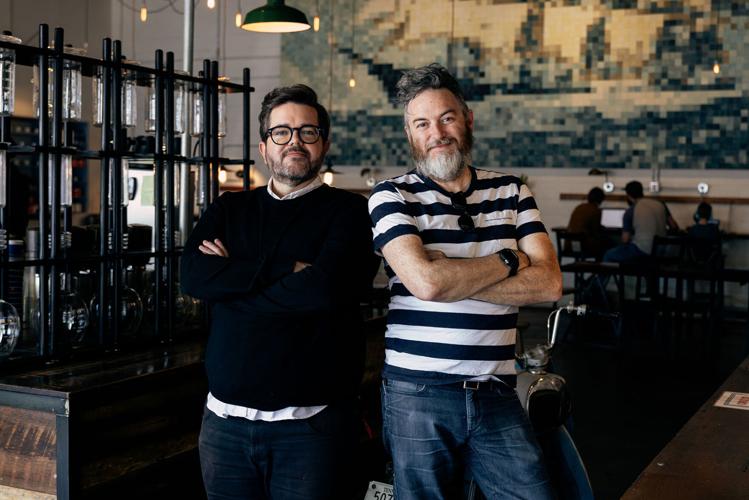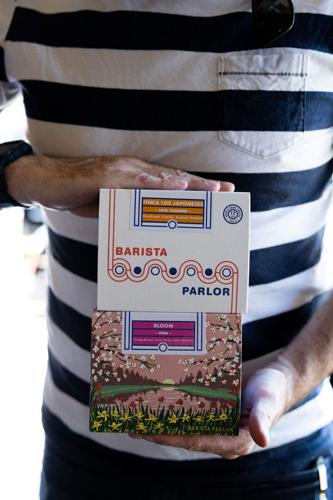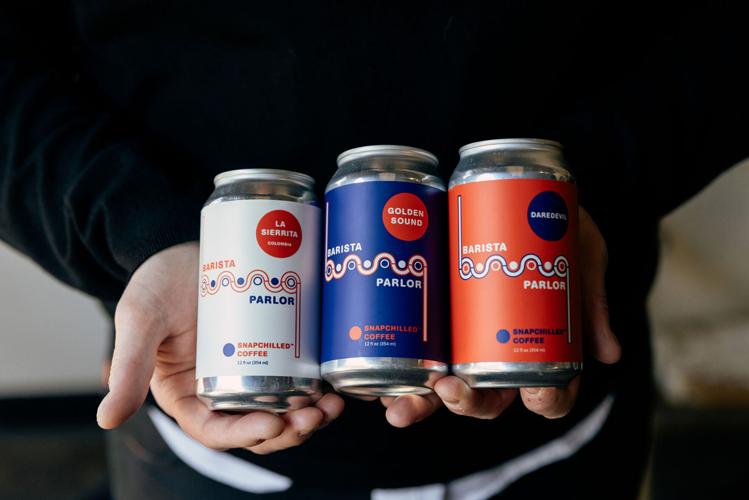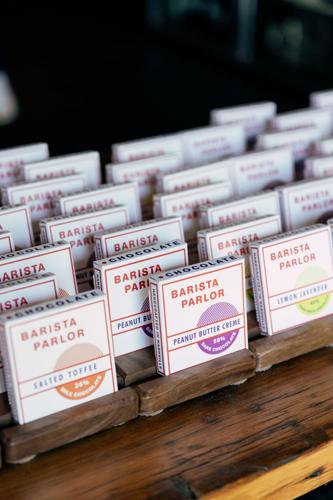When Andy Mumma opened the first Barista Parlor location in an old East Nashville transmission shop a decade ago, it was hard to imagine it would become an essential neighborhood destination. It didn’t even have a street-facing storefront. He wasn’t sure if people would show up to buy coffee from the old garage he overhauled (with help from his friends and his dad).
But it didn’t take long before BP became a hangout, a place where people would write business plans or go after the East Nasty Running Club. People even got married in the parking lot, with the lightbulbs spelling out “Barista Parlor” glowing above their heads. (Side note: 2012 was a big year for food in Nashville — both Biscuit Love and The Peach Truck are celebrating their 10th anniversaries this year too.)
Barista Parlor officially turns 10 on May 12 — watch its social media accounts over the next week for announcements of promotions and specials to honor the anniversary. As the small empire of coffee shops hits that milestone, things look different than they did in the early days. There are seven BP locations now in some pretty high-profile spots, including at the Nashville International Airport and inside the W Hotel. An eighth will open later this month in Sylvan Supply, and more expansion is on the way. Later this year Barista Parlor will open its first locations outside of Nashville in Louisville and Indianapolis. The Golden Sound outpost is moving to what’s shaping up to be the spot for the cool kids in the locally owned business set, joining The Patterson House and The Catbird Seat in the Bill Voorhees Building. The company’s roasting operations, currently at Golden Sound in the Gulch, will move from a 600-square-foot spot to a 6,000-square-foot space in Wedgewood-Houston. That project, dubbed BP HQ, will house training facilities, a full bakery, roasting facility tours, an art-forward retail space and Mumma’s first real office and conference room.

“It is the opportunity to do something wild and different,” says Mumma, a man who also owns a robot-themed tiki bar (Chopper, a separate business around the corner from the East Nashville BP). “I’m driven by the idea and the excitement of being able to create a whole new space every time.”
“Coffee shops are kind of like the town square of daily life,” says Bryce McCloud — artist, owner of Isle of Printing and frequent collaborator with Mumma. “That is where we go to meet one another and do things that in another era might have been in a more public common space. That to me is what Barista Parlor is at its best and what I really wanted to create. This is a space where people’s minds could soar.”
Mumma’s partnership and friendship with McCloud allowed BP to create an aesthetic that is specific to the brand, but different for each location. In East Nashville, there’s a 24-foot mural of a ship made from individual letter-press images. Even after a decade, it feels of the times, asking us to contemplate the journey and the object. You can see how McCloud’s approach to art has evolved. In the W Hotel location, he built wooden lamp structures and then stretched screen-printed designs over the frames.
Most of the Barista Parlor locations have had adaptive reuse elements in what Mumma calls “a tasty way.” Many have links to transportation, a passion of Mumma’s since childhood, when he worked on a dairy farm and cleaned vintage delivery trucks. The Germantown location was formerly a sign shop. Golden Sound was a recording studio and automobile repair space. “Whether it’s automobiles or rocket ships, transportation has always been the underlying or overarching theme,” he says. “We’ve taken it even more to the extreme with exploring the idea of exploring other worlds.”

What does that have to do with coffee? Well, Mumma’s glad you asked. “With that, what we’re saying is exploring the possibility of other flavors in coffee. We hope you get out of your comfort zone and taste something from the natural process of coffee for the first time, or something that you didn’t know existed. Coffee is an agricultural product, and it’s the seed of a fruit. Coffee doesn’t have to taste just one way. That’s the idea.”
BP uses a Slayer machine to extract espresso, which Mumma says has more control over more variables — temperature, pressure and the like — which allows them to control sweetness, mute acidity and control the mouthfeel. On the brewing side, BP offers manual pour-overs. “There’s just something about being able to take the time to pour one cup at a time,” Mumma says. “You’re able to really focus on all the variables to extract a perfect coffee.”
The BP staff has the flexibility to pair a method with a coffee. One coffee may be better through the Chemex machine, highlighting the sweetness and flavor clarity that would be missing through a full immersion like a French press.
“We try to make it really easy to order and do all of the work in the background. We are not here to educate everyone on every coffee,” Mumma says. “If someone wants to explore a little more, we can do that, but if they just want a coffee, we can do that. That’s part of the evolution of BP through the years.”

No place is universally popular, and for some people Barista Parlor is too hip or too slow. In its early days, sometimes it felt like performance art about coffee, rather than somewhere to get a cup of Joe. While you still can sit, wait and savor your coffee, there is drip coffee and now online ordering and pickup, so you can get your fix quickly. Plus, you can buy beans to brew at home. But the Barista guys say it’s about more than the coffee. It’s a place to experience art, to listen to music being played on a turntable and to be part of a community.
Mumma’s own relationships strengthened as a result of the process of building BP. His mother died when he was readying to open the first location, a loss that made him question whether he could move forward. His father, from whom he had been largely estranged, moved to Nashville and helped Mumma finish the build-out and open the shop — he even cooked waffles and biscuits in the kitchen during the first few months. Not only did that collaboration launch BP, but it also repaired their relationship.
“Entrepreneurs have a vision for the world,” McCloud says of Mumma. “Andy is successful because he is excited. He allows a lot of room for creativity to happen. These are not ego-driven projects. It is about the space and the experience.”
And indeed, Mumma — now 42 — doesn’t do interviews often, preferring instead to let the shops speak for themselves. “One of the rewarding things of running Isle of Printing is I feel like I bring people’s dreams to life,” McCloud continues. “Andy and I have a true partnership in that regard. Art should feel like play. It should have serious ideas, too. What Andy and I have done together is so magical to me because at the heart of it is this playfulness.”









